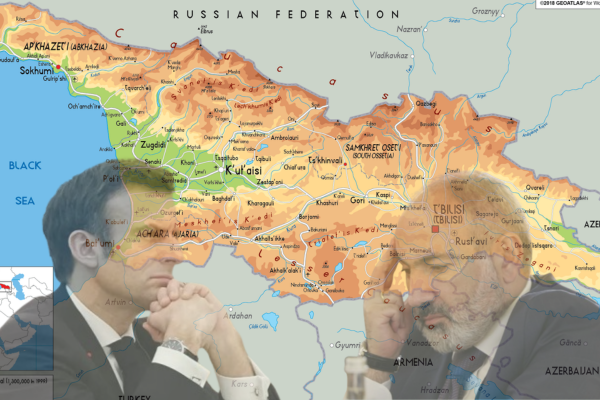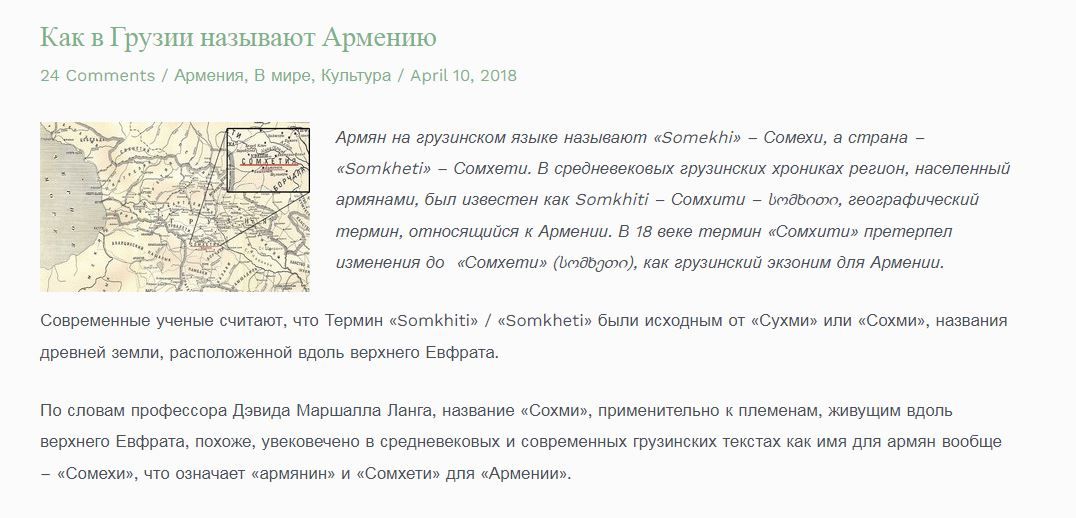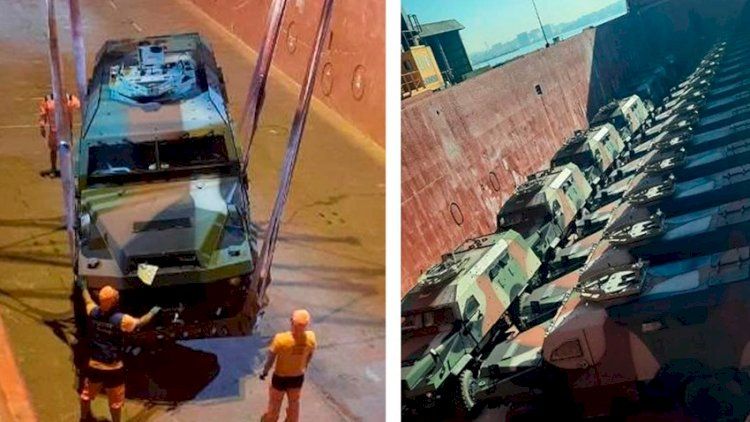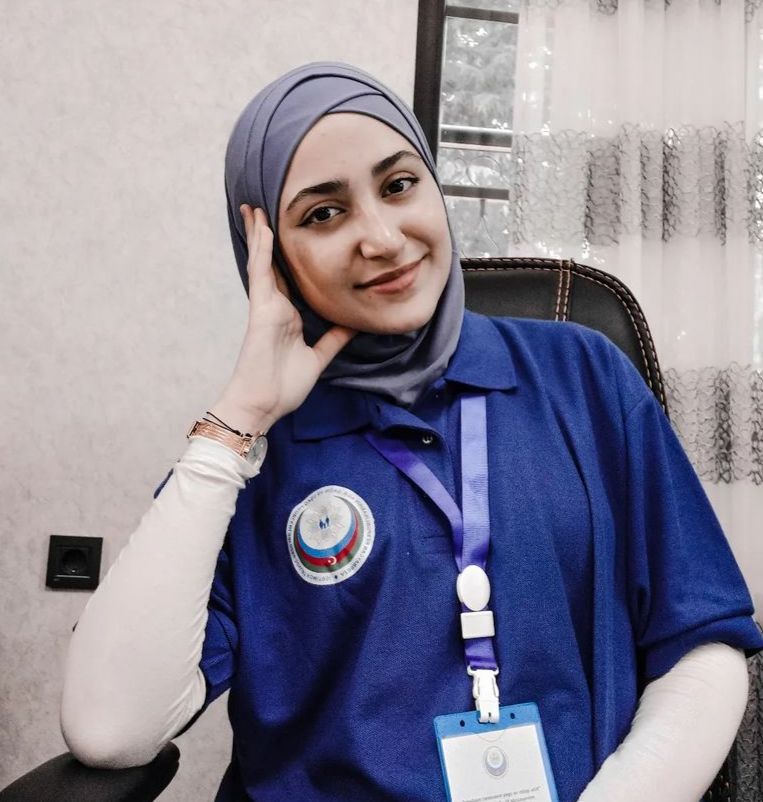Georgian elections leave Yerevan and France to deal with a tough question

The Armenians resettled by Tsarist Russia in the South Caucasus from the late 18th to the early 20th centuries began making territorial claims against their neighboring countries—Iran, Azerbaijan, Turkiye, and Georgia—after establishing their own state on Azerbaijani lands in 1918-1920. The claims against Azerbaijan sparked the 30-year-long Garabagh conflict. Despite all of Baku’s peace calls, Yerevan continued to commit inhumane crimes and genocides in Garabagh. The counteroffensive operations conducted by Azerbaijan in 2020 and 2023 to end Armenian occupation were successful, resulting in the liberation of Garabagh and Eastern Zangazur by the Azerbaijani army, with reconstruction and restoration work now proceeding rapidly in these areas.
However, peace between Armenia and Azerbaijan remains elusive due to delays in negotiations caused by Armenia's pointless manoeuvres. Today, Western countries, especially France, continue to arm Armenia, threatening regional stability, creating new tensions, and showing no goodwill for peace.
As noted, Armenia’s territorial claims are not limited to Azerbaijan; similar claims have also been made against Georgia. Armenians, considering present-day Georgia as part of their territory, claimed that the regions of Sukhumi and Dmanisi in Georgia were ancient Armenian lands, attempting to support these claims with “historical facts.”

Over the years, the West’s policy of arming Armenia has led Yerevan to act more cautiously towards Tbilisi. It is worth noting that Armenia has land borders with four countries, but with the borders with Turkiye and Azerbaijan closed, only Iran and Georgia remain accessible. The transportation of weapons and military equipment purchased from India via Iran and supplies from France and other European countries via Georgia has been under discussion for a long time. Last November, France carried out this plan by transporting multipurpose “Bastion” armoured vehicles from Georgia’s Poti port to Armenia. Thus, Western circles began to believe they could manipulate Georgia as they had with Armenia.

However, this year's parliamentary elections in Georgia led to open criticism from the West, particularly the United States and the European Union, which derailed some plans. U.S. Secretary of State Antony Blinken and the EU’s High Representative for Foreign Affairs and Security Policy Josep Borrell expressed concerns about the election environment in Georgia, noting that it was “neither free nor fair.” Antonio López-Istúriz White, a representative of the European Parliament, also mentioned the decline of democracy in Georgia, describing the election environment as “chaotic and oppressive.”
Opposition parties attempted to amplify their claims and mobilize, with some protests and demonstrations organized in response to international pressure. Obviously, one of the reasons behind this turmoil is Georgia’s effort to pursue a balanced policy between the West and Russia in recent years. The Georgian leadership seeks to maintain relations with the West while avoiding open confrontation with Russia. Meanwhile, the EU and the U.S., eager to gain full control over Georgia, create tensions internally through constant pressure. Another point of contention is Georgia’s EU integration process, with the West issuing “polite” threats against Georgia. The opposition’s instigation of unrest turns the country into a battlefield for the geopolitical interests of the West and Russia.
On the other side, Armenian Prime Minister Nikol Pashinyan, who extended his congratulations to the winning party, faces criticism. Just hours after the election, Pashinyan congratulated his counterpart, signalling that he may recognize that Georgia is no longer a tool of the West and is attempting to position herself favourably in the region. However, it remains unclear how the victorious Georgian party will view the West’s policy of arming Armenia.
In a nutshell, Georgia’s pursuit of an independent policy today concerns Armenia, which relies on foreign support and tries to expand its influence in the region. The West is now calling on opposition forces in Georgia to stir up new unrest, while Armenia, as always, plays a double game, attempting to ingratiate itself with the ruling “Georgian Dream” party.
----
Getting accurate and unbiased information in the global media space has become a real struggle. AzerNEWS, the number one English-language newspaper provides you with the most accurate, fresh and thorough information.
By subscribing to our online newspaper, you can have full digital access to all news, analysis, and much more.
Fatima Latifova is AzerNews’ staff journalist, follow her on Twitter: @fatimalatifova
Follow AzerNEWS on Twitter @AzerNewsAz or Facebook @AzerNewsNewspaper
Here we are to serve you with news right now. It does not cost much, but worth your attention.
Choose to support open, independent, quality journalism and subscribe on a monthly basis.
By subscribing to our online newspaper, you can have full digital access to all news, analysis, and much more.
You can also follow AzerNEWS on Twitter @AzerNewsAz or Facebook @AzerNewsNewspaper
Thank you!

